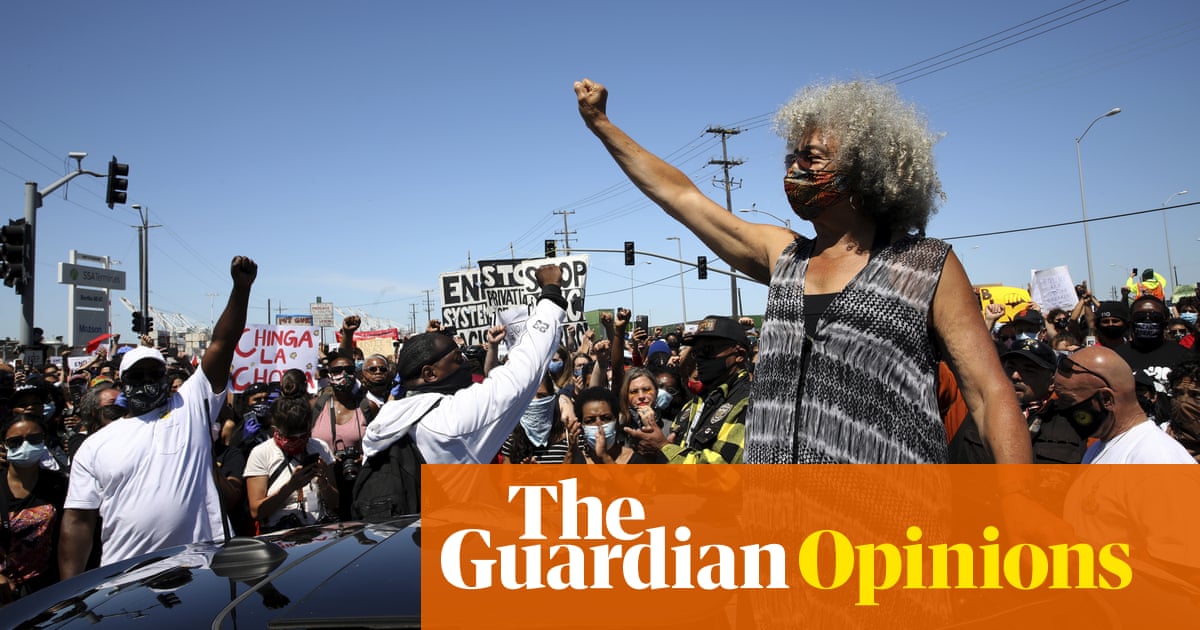
speak my mind in a lot of these songs,” Johnny Cash wrote in the liner notes to the album Man in Black, released 50 years ago today. He might be better known now for the outlaw songs of his youth or the reckonings with death in his final recordings, but Cash used his 1971 album to set out his less-discussed political vision: long on feeling and empathy, and short on ideology and partisanship. The United States seemed hopelessly polarised, and Cash confronted that division head-on, demanding more of his fellow citizens and Christians amid the apparently endless war in Vietnam.
Over a year earlier in January 1970, at the start of the second season of his television variety show, Cash said that he supported President Nixon’s handling of the war. Coming in the aftermath of massive anti-war protests, it appeared to many that Cash had thrown in his lot with the “silent majority” of Americans who, Nixon claimed, endorsed his plans for peace. Cash had also taken his show to Vietnam to play for the troops a year before that, reassuring them that unlike the “shitheads” protesting at home, most Americans backed them. A US Air Force veteran, Cash related to GIs just trying to do their jobs.
But by the time Cash played the Nixon White House in April 1970, he had changed his views. In the song Route #1, Box 144, he made clear that his foremost concern was American families risking and losing the lives of their boys to the war. And in What Is Truth, he defended the “lonely voice of youth” that questioned a war in which so many Americans were dying and to which they might next be called to fight. When Cash played What Is Truth at the White House, the newscaster Dan Rather reported that “it seemed to surprise the president a bit”.
A few weeks later, after Nixon sent ground troops into Cambodia, and the nation erupted in protest over both the invasion and the killing of unarmed students at Kent State University in Ohio, the president contrasted American soldiers – whom he called “the greatest” – with the “bums” on the college campuses. Cash never uttered a word of support for the president in public again.
When Man in Black came out a year later, Cash used the liner notes to acknowledge that, “Yes, I feel different than I did a year ago about so-and-so” – and he could only have meant Nixon. “A year ago, I had done a lot less thinking than I have now.” The album that buyer held in their hands, he implied, expressed his more considered views.
At the heart of the album is the title track, which, already released as a single, articulated Cash’s vision of himself as a citizen artist. The song’s wartime origins are often overshadowed by the line that Cash wore black “for the poor and the beaten down / living on the hungry, hopeless side of town”. It speaks to his empathy for the downtrodden and the struggling, but this is a man in funeral attire: “I wear the black in mourning for the lives that could have been / Each week we lose a hundred fine young men.”
Cash first performed the song for a group of Vanderbilt University students in Nashville, on his television show in February 1971. That show featured segments of dialogue between Cash and Vanderbilt students, shot on their campus, interwoven with performances by rising young stars – James Taylor, Linda Ronstadt, Tony Joe White, and Neil Young. In one of the campus conversations, a student asked Cash why he always wore black. By the time they reconvened the following week to tape the musical performances at the Ryman Auditorium, Cash had come up with Man in Black, debuting the song with the assistance of cue cards as he had only finished the lyrics that morning. Few viewers could have missed the significance of Cash singing to draft-age students – who, regardless of what they may have thought 10 months earlier, now saw him as one of their own.
A few weeks later, during an end-of-episode monologue, Cash played Man in Black again, dedicating it to a group of servicemen from Kentucky who came to see the show at the Ryman. There could be no mistaking Cash’s association of the song with the war and American servicemen. After the camera panned to show the men in uniform, Cash said: “This is my uniform. For four years I wore the uniform of the United States Air Force; now they call me the man in black.” This time, Cash played a more austere version of the song – him playing guitar alone with the rhythm section not visible – so that his emotion came through to viewers at home.
As he got closer to the line about wearing black in mourning, he became more animated and angry, projecting his voice to the point of almost shouting. The Ryman audience gave him a massive, supportive ovation.
When listeners flipped the album to side two, they immediately heard another new war song Cash had first performed on his television show: Singin’ in Viet Nam Talkin’ Blues. Cash said he wrote the song “for all the men in the military, especially for those who are overseas and want to go home”. As a veteran himself, he said: “I know how it feels.” The song is a folk coffee-house narration, an actual talking blues, of his January 1969 trip to Long Binh. He recounts performing for the GIs, the enemy shelling the base and seeing the wounded come in by helicopter “night after night, day after day”. In the last part of the song, Cash plainly states that he is less concerned with “whether we belong over there or not” than he is with honouring the troops and being aware of the human costs of the war. As he sang the last line about hoping for the war’s end, “and they all come back home”, he practically cried out: “To stay – in peace!”
In Man in Black and Singin’ in Viet Nam Talkin’ Blues, Cash rejected any association with the “silent majority”. Instead of support for Nixon’s stale promises of “peace with honour”, Cash pleaded for peace now. In those songs, he reminded anyone who listened that, no matter the justifications, the cost of the Vietnam war – the lives of tens of thousands of “fine young men” – was unacceptable.
These comments have real political heft, but more subtly powerful is the political implication of Cash’s faith. He had first performed the opening track, the awkwardly titled The Preacher Said, “Jesus Said”, on a special gospel episode of The Johnny Cash Show accompanied by evangelist Billy Graham. Cash sings from the perspective of young people searching for answers in times of greed, hate and troubles. Politically speaking, it first appears to be a lightweight song, a gift to Graham that sounds like a country music distillation of a preacher doing what preachers do: saving souls.
But Cash wasn’t interested in saving one soul at a time. On Man in Black, he showed how his politics of empathy derived from a more active – almost activist – application of Christian teachings toward contemporary social problems.
Look for Me was written by Glen Sherley and Harlan Sanders, two ex-convicts in whom Cash had taken a special interest – Cash performed Sherley’s Greystone Chapel on the At Folsom Prison album, with Sherley in attendance as an inmate. Cash blends a countercultural theology of seeing God in nature with a message of saving the social order through love and charity: look for Jesus in the way honey bees guide a bear to feed his hunger, but also look for him in those who “lift the beggar up”, who tend to an abandoned baby. The idea is that the listener can find Jesus in themselves if only they extend their care and concern to others. Rather than try to save one soul at a time, as Graham might, Cash pressed his fellow Christians to meet their civic and Christian responsibility, to lift up those left behind in times of precarity and want.
As Cash made clear in Dear Mrs, he had no patience for those who could not summon empathy for the marginalised. The song is written as a letter from a prisoner to the widow of an inmate who has died and, because no one came to claim his body, is buried outside the prison walls. “No matter how terrible his crime might have been,” Cash sings, “the death he died today was more inhuman.” The song is a damning critique of a society that turns away from prisoners and the lowly. It is also empathises with those left to rot and die alone, out of view and abandoned.
By the time the album concludes with the upbeat I Talk to Jesus Every Day – meant to function like a closing hymn, sending you away feeling better – the man in black has carried off the darkness of troubled times, as if absorbing them into his clothes.
A half-century later, with so many pundits telling us that we’re experiencing “unprecedented” political polarisation in America, Man in Black still has something to teach us about citizenship. Cash practises a politics based on empathy, setting aside partisanship and ideological dogma to find in our own experience a means to identify with “the ones who are held back”. With so many people today still held back, from freedom and from one another, we should listen anew – and listen hard – to the songs on Man in Black.












